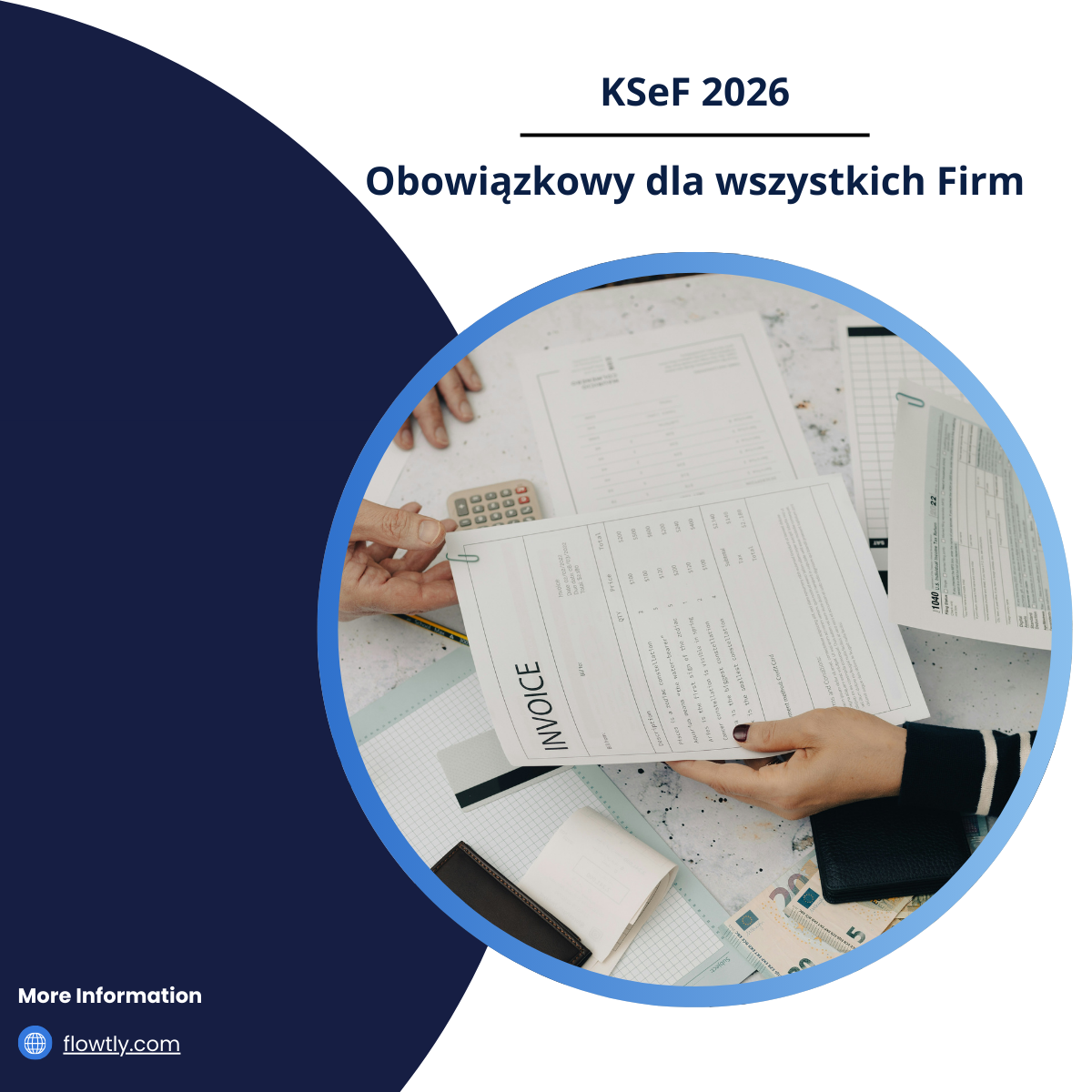KSeF – What It Is and How to Prepare Your Business for Mandatory E‑Invoicing in 2026

The National e-Invoicing System (KSeF) is a government platform that will become mandatory for all businesses operating in Poland starting January 1, 2026. From sole proprietors to large corporations, every company will be required to issue structured invoices through KSeF.
This article explains:
- what KSeF is and how it works,
- the reasons behind its introduction,
- the legal and operational impact on businesses,
- practical steps to prepare,
- how Flowtly supports KSeF compliance.
1. What Is KSeF? [Definition]
KSeF (Krajowy System e-Faktur) is an official Polish government platform designed to handle structured electronic invoices. It enables companies to:
- issue invoices in structured XML format,
- transmit them directly to clients via the government system,
- archive documents for 10 years,
- share data with the tax office in real time.
A structured invoice is a machine-readable file format based on a fixed XML schema, ensuring compatibility with accounting software and eliminating the need for manual data entry.
2. Why Was KSeF Introduced? [Purpose]
The system is being implemented by the Polish Ministry of Finance to:
- improve VAT collection and reduce fraud,
- simplify tax settlements,
- eliminate the requirement to send JPK_FA files,
- shorten VAT refund timelines (up to 40 days),
- improve transparency and security in invoice circulation.
3. Who Must Use KSeF?
Starting in 2026, KSeF will be mandatory for:
- freelancers and sole proprietors,
- small and medium-sized enterprises,
- large companies and corporations,
- foreign companies issuing invoices in Poland.
No exemptions are planned – compliance is required from all business entities.
4. Business Implications
Mandatory use of KSeF will significantly affect how invoices are issued and processed:
- New invoice format – PDF files will be replaced by structured XML.
- System integration – your invoicing or ERP software must connect to KSeF.
- Process adjustments – internal document workflows must be updated.
- Legal risk – invoices not sent through KSeF may be considered invalid.
5. How to Prepare Your Company [Checklist]
To ensure a smooth transition, businesses should:
- Audit current tools – check whether your invoicing system supports XML and KSeF integration.
- Train staff – especially accountants and admin personnel.
- Run early tests – implementing the integration in 2025 allows time to identify issues before the 2026 deadline.
6. Flowtly’s KSeF Integration
Flowtly will be fully integrated with the KSeF system. This means:
- invoices can be sent and received directly within the Flowtly platform,
- all documents will be fully compliant with Ministry of Finance regulations,
- the invoicing workflow will be handled in a single, unified environment,
- no need for additional tools or third-party services.
Flowtly ensures your business transitions to KSeF with minimal disruption and full transparency.
7. Summary
Mandatory e‑invoicing via KSeF introduces significant changes for businesses, but it also offers opportunities to modernize processes and improve fiscal transparency.
Companies that act early and adopt compatible systems – such as Flowtly – will benefit from smoother operations, lower compliance risks, and better control over financial data.